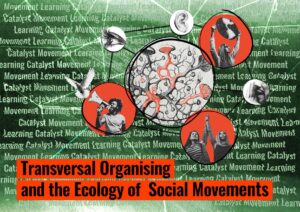In late 2021, we engaged activists involved with more than 100 organisations across Europe, to ask them about the key challenges their movements and organisations were facing. Most pointed to fragmentation, persistent divisions within and between movements, and a lack of movement capacity for longer-term and coherent strategy.
Based on this, together with our close comrades from Maynooth University Ireland, European Alternatives and the European Community Organizing Network, we set out to develop learning support to build capacity for initiatives that are transversal and transnational in nature, able to connect across issues, communities, and socio-political cultures – supporting the building of the kinds of impactful social movement alliances required to achieve the depth of structural transformation we need today.
Now we are delighted to publish a new Guide to Learning for Systemic Change and an analysis of contemporary learning needs in our movements today published as Exploring Competencies and Capabilities for Transversal Organising and Social Movement Learning.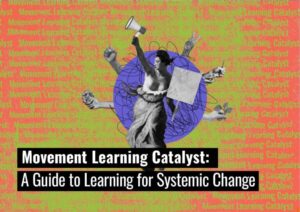
MLC Guide to Learning for Systemic Change
The guide has five main parts sharing key insights and practices, as well as providing more than 40 learning activities that can be used to explore the core themes. The four parts are:
1. Transversal Organising and the Ecology of Social Movement: This part discusses the importance of building powerful alliances within the “ecology of social movements” to address global challenges such as the rise of authoritarianism, climate collapse, and increasing inequality. It emphasizes the strength in diversity and the need for transversal organizing across various social and organizational differences.
2. Transnational and Translocal Organising: This part explores the concepts of transnationalism and translocalism, challenging learners to reimagine organizing beyond the nation-states. Emphasising global solidarity, it traces the heritage of social movements and confronts borders, advocating for collaborative efforts to dismantle globally interlocked systems of oppression.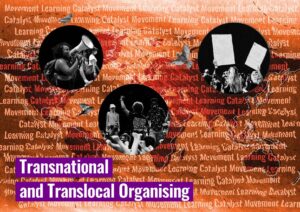
3. Strategy and Movements: This part explores strategy and movements practices essential for navigating and influencing social movements effectively. From the foundational stones of strategy understanding, vision articulation, and contextual awareness, it builds up to dissect the intricate dynamics of power, the persistence of hegemony, and the guiding principles derived from the study of complex living systems.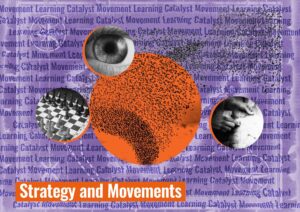
4. Popular Education and Movement Learning: This part delves into the rich, layered processes of movement learning and popular education, emphasizing the transformative power of activist knowledge production and sharing. The series explores the history, principles, and practices of radical popular education, drawing heavily on Paulo Freire’s work to emphasize dialogue, critical reflection, and the political commitment to emancipation.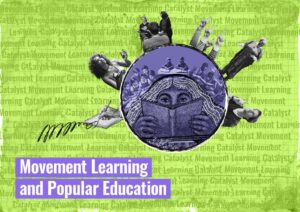
5. Notes on Pedagogy: This section aims to support educators to use and contextualise MLC learning resources to their group and organisations. It presents the pedagogical principles and practices for transformative learning of the MLC.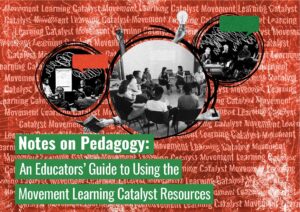
Download the full PDF here: MLC Guide To Learning for Systemic Change 2024 or access the guide through the MLC website at movementlearning.org

